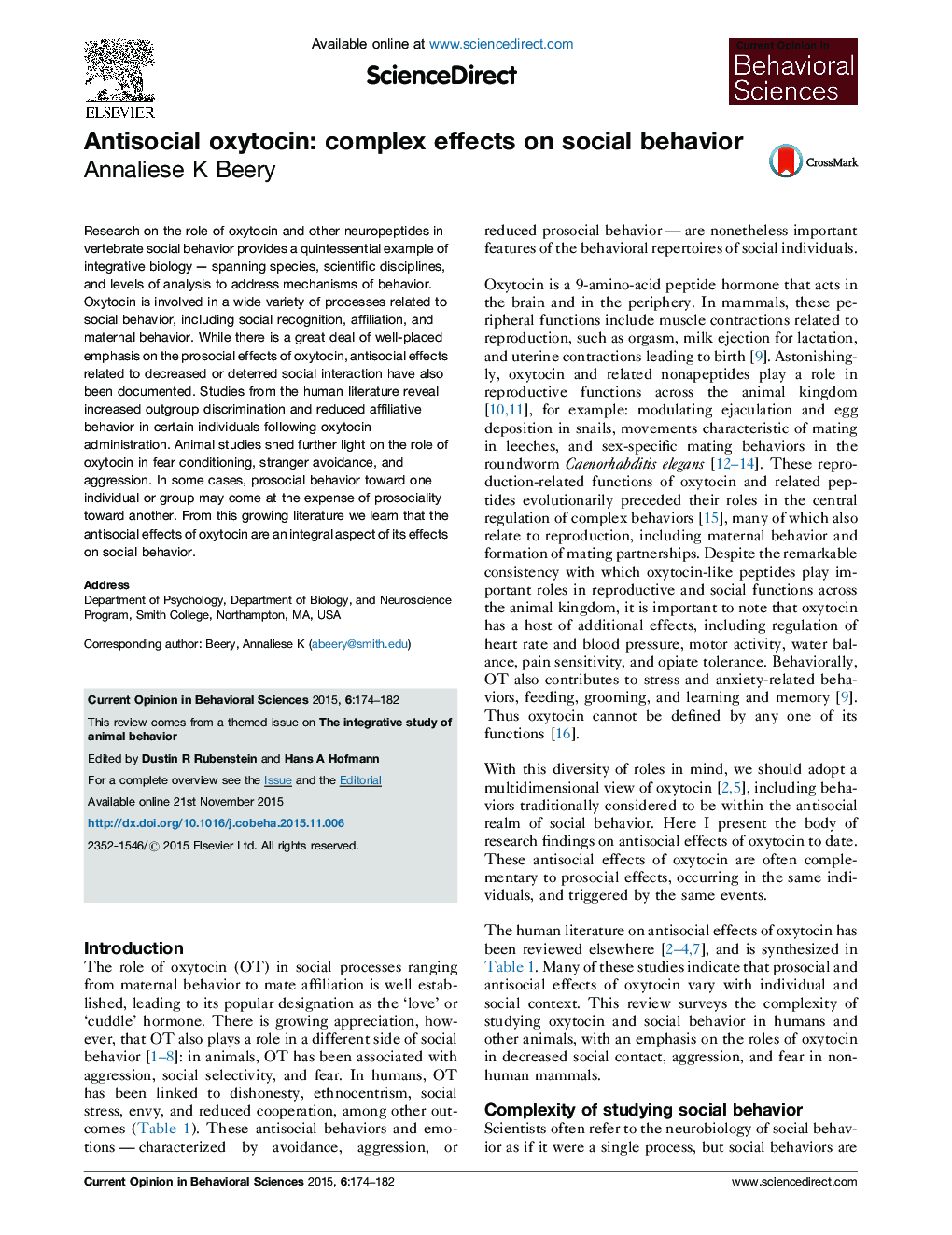| کد مقاله | کد نشریه | سال انتشار | مقاله انگلیسی | نسخه تمام متن |
|---|---|---|---|---|
| 6260781 | 1613084 | 2015 | 9 صفحه PDF | دانلود رایگان |
- Oxytocin is well known for its prosocial effects on behavior.
- Recent studies have highlighted antisocial effects in animal and human studies.
- Both oxytocin and social behavior must be considered in more nuanced ways.
- Some antisocial effects are part of prosocial effects.
- Species, sex, background, and context shape the effects of oxytocin.
Research on the role of oxytocin and other neuropeptides in vertebrate social behavior provides a quintessential example of integrative biology - spanning species, scientific disciplines, and levels of analysis to address mechanisms of behavior. Oxytocin is involved in a wide variety of processes related to social behavior, including social recognition, affiliation, and maternal behavior. While there is a great deal of well-placed emphasis on the prosocial effects of oxytocin, antisocial effects related to decreased or deterred social interaction have also been documented. Studies from the human literature reveal increased outgroup discrimination and reduced affiliative behavior in certain individuals following oxytocin administration. Animal studies shed further light on the role of oxytocin in fear conditioning, stranger avoidance, and aggression. In some cases, prosocial behavior toward one individual or group may come at the expense of prosociality toward another. From this growing literature we learn that the antisocial effects of oxytocin are an integral aspect of its effects on social behavior.
Journal: Current Opinion in Behavioral Sciences - Volume 6, December 2015, Pages 174-182
